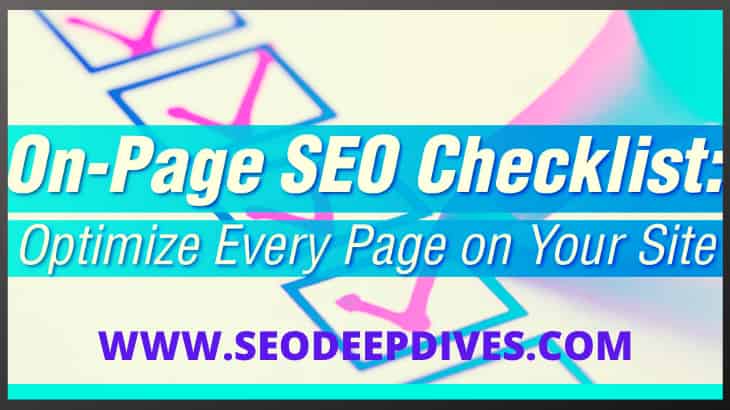How To Do On-Page SEO?
This is the most burning question that how to do the on-page SEO. Probably you have great content for publishing on your website or blog. But there should be some basics to understand before going ahead. These basics are about On-page Search Engine Optimization. It is necessary for getting organic traffic. Taking no notice of On-page SEO, you cannot get reasonable results. It is very good to have better content or an idea to create content. In spite of all these, you have to acknowledge the importance of On-page SEO.
When you publish something on the website. Search Engines analyze the content on websites and identify the most suitable content of a website. If the website,s content meets the requirements of the search engine, it will prefer this to another website. As a result, your content will get a boost from Crawlers of Search Engines. For getting an understanding of On-Page SEO and the crawling of a website, firest you should read this article WHAT IS AN SEO
What is On-Page SEO?
You can understand the on-page SEO through an example. Imagine there is a body such as the content on the website and the soul of this body lies in the optimization of the content. If there is no soul, the body is just like a dead one. That is why proper importance should be given to On-page SEO. Actually, On-page SEO is about your content Optimization. For example, in this article at the top, we gave a heading and divided the whole article into paragraphs. So that reader may read which one he likes. If we assemble this article into one paragraph, no one will like our writing style and ultimately will move toward other websites. That will be harmful both for the website and user experience. User experience matters a lot. It is the key to success in search engine optimization.To understand deeply, let,s divides the On-page SEO into different points:
Search Engine Optimization - SEO
On-Page SEO- Website Analysis
- Competitor Analysis
- Keywords Research and Analysis
- Meta Tags
- Heading Tags
- Internal Linking
- Content optimization
Above mentioned terms are subcategories in the On-page SEO of a website. If you want to get an influx of traffic on your business website, you should have to consider the importance of these factors. Either you own an online business or you are a blogger these factors are equally important to you. As a businessman, you will get more revenue. On the other hand, as a blogger, you can get more revenue from your blog by getting the right traffic. We can write hundreds of pages on these topics and indeed we will do it in the future. But right now due to shortage of time we will explain a brief introduction of these topics. But don,t worry in the coming articles we will write deeply on these topics. Let,s take a quick overview that how to do on-page SEO. Let,s discuss these terms separately.
Website Analysis:
In the website Analysis, we find the strong and weak points in the content. The strong point will be an opportunity. While weak points should be avoided and must be removed as soon as possible. Taking the weak points a competitor can get the opportunity to rank his own website. In reality website analysis is the audit of your website. Under this audit system, we get an overall overview of web content. For example, if you do not know about the on-page SEO, it is evident you will miss the placement of the right keywords in your content. It may be your content overstuffed with keywords. Maybe you have poor internal linking as well as missing meta tags. It means there should be a complete website analysis of your website.
Competitor Analysis:
Now the next one is Competitor analysis. This is the most critical point in the on-page SEO journey. You should keep in mind the competitor moves and try to capture the competitor's weakness. Under this approach, you can gain an edge over your competitor. It is very simple to know the competitor's weaknesses and strengths. Just write on Google the Analysis of competitor website and open a website. After that paste the exact URL of your competitor's website on the search bar. You can also visit this site Competitor analysis. Afterward, compare the results with your own website.



No comments:
Post a Comment